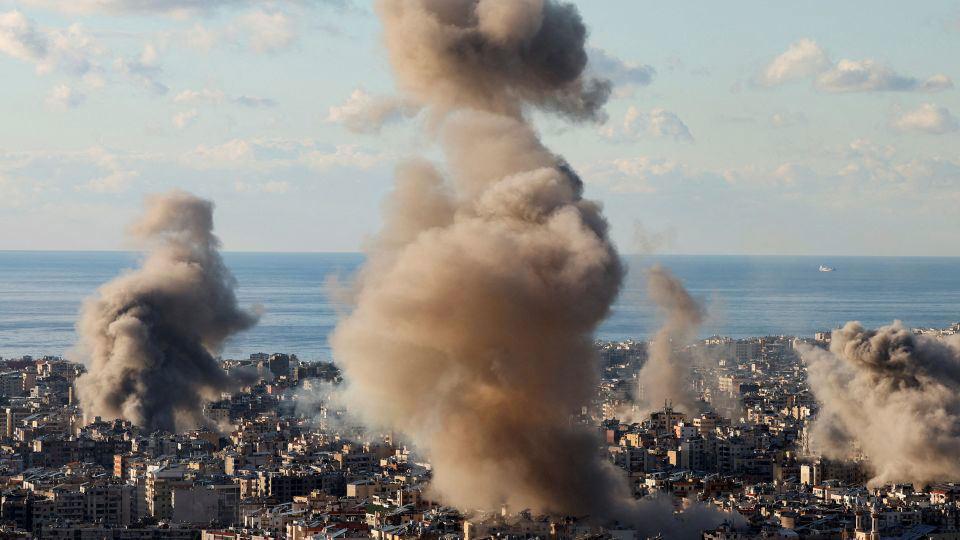Ceasefire or Conflict? Examining Israel’s Alleged Violations After the Truce

A recent report from Palestinian officials has alleged that Israel has violated the current ceasefire agreement, resulting in the deaths of at least 97 Palestinians since the truce was declared. The report accuses Israeli forces of carrying out targeted strikes and ground operations in multiple areas of the Gaza Strip and the West Bank, raising fears that the fragile ceasefire may be on the verge of collapse.
The revelations have intensified global scrutiny, as international mediators push both sides to uphold commitments to peace amid one of the region’s most volatile political climates in years.
The Ceasefire and Its Fragile Terms
The Israel-Palestine ceasefire, brokered by international mediators including Egypt, Qatar, and the United States, was meant to halt months of escalating violence and humanitarian crisis in Gaza.
Under the terms, both parties agreed to halt airstrikes, rocket launches, and ground incursions, allowing humanitarian aid to reach displaced civilians. The agreement was hailed as a “critical step toward stability,” but tensions remained high due to unresolved political and territorial disputes.
However, Palestinian authorities now claim that Israel has repeatedly breached the truce, citing drone attacks, sniper fire, and raids on border communities. Israel, in response, has maintained that its actions were “defensive measures” taken in response to continued provocations and militant activity near its borders.
Details of the Report
The Palestinian Ministry of Health released its findings late Monday, documenting 97 deaths and over 250 injuries allegedly caused by Israeli military activity since the ceasefire began. The majority of casualties were reported in Gaza City, Khan Younis, and parts of the northern West Bank.
The report includes testimonies from witnesses and local medical personnel, who described attacks on residential areas, aid distribution sites, and border checkpoints. Images shared by local journalists showed damaged civilian infrastructure, including homes, roads, and power lines.
Officials called the situation “a clear violation of the ceasefire terms and international humanitarian law.”
“This is not a truce; it has become a continuation of war under a different name,” said Dr. Yousef Abu Rish, a senior official with the Gaza Health Directorate. “Our people continue to pay the price despite promises of peace.”
Israel’s Response
The Israel Defense Forces (IDF) has denied violating the ceasefire, claiming that all operations were targeted counter-terrorism actions against militant groups attempting to regroup or smuggle weapons.
“Israel remains committed to the ceasefire but reserves the right to defend its citizens,” said an IDF spokesperson. “We have identified ongoing threats from armed groups operating within Gaza, and our actions have been limited, precise, and necessary.”
Israeli officials also alleged that militant factions in Gaza have continued to test the ceasefire’s limits by firing sporadic rockets, digging tunnels near the border, and mobilizing fighters.
This back-and-forth has created a tense and uncertain environment, with both sides accusing each other of undermining the peace effort.
International Reaction
Global reaction to the report has been one of concern and growing frustration.
-
The United Nations called for an independent investigation into the alleged violations.
-
The European Union urged both parties to exercise restraint and reaffirmed that civilian lives must be protected “under any circumstances.”
-
Human rights organizations, including Amnesty International and Human Rights Watch, have also demanded transparency and accountability, urging Israel to allow access to international monitors.
U.S. Secretary of State Antony Blinken reiterated Washington’s support for the ceasefire but noted that “any violation, by either side, risks undoing the fragile progress made through months of diplomacy.”
Humanitarian Impact
The humanitarian situation in Gaza remains dire. According to local NGOs, over 1.5 million Palestinians are still displaced, many living in overcrowded shelters with limited access to water, electricity, and medical supplies.
Despite the ceasefire, the blockade restrictions remain largely in place, slowing down the flow of humanitarian aid. The latest violence has disrupted supply chains again, forcing international relief agencies to temporarily halt operations in some regions.
UNRWA (United Nations Relief and Works Agency) warned that the ongoing instability could lead to another humanitarian collapse if hostilities continue.
“Our staff are risking their lives every day,” said UNRWA spokesperson Juliette Touma. “Without a sustained and genuine ceasefire, no amount of aid can meet the growing needs of Gaza’s population.”
Regional and Political Implications
The ceasefire violations have also sparked diplomatic unease across the Middle East. Countries like Egypt and Qatar, which played key roles in brokering the truce, are now working to prevent a complete breakdown of negotiations.
Analysts say the violence highlights the deep mistrust between the two sides, as well as the lack of a political mechanism to monitor and enforce compliance.
In Jordan and Turkey, officials condemned the violence and called for renewed dialogue, warning that continued aggression could ignite another wave of regional instability.
Voices from the Ground
For many Palestinians living through the conflict, the word “ceasefire” has lost meaning.
“We don’t feel peace, not even for a single day,” said Layla al-Najjar, a resident of Khan Younis. “Every night, we hear drones and explosions. We live in fear even when they say the war is over.”
Meanwhile, in Israel, residents near the Gaza border towns have expressed frustration over security concerns, saying that rocket alerts and clashes continue to disrupt daily life. The public sentiment in both nations reflects exhaustion — and skepticism about whether peace is truly achievable.
Final Thought
The alleged ceasefire violations highlight the fragile and complex nature of the Israel-Palestine conflict. While the world hoped the truce would mark a step toward calm, the continued violence underscores that peace requires more than agreements — it demands accountability, trust, and political courage on both sides.
Until then, the headlines of “temporary peace” will remain overshadowed by the reality of ongoing loss, grief, and uncertainty for millions caught in the crossfire.

